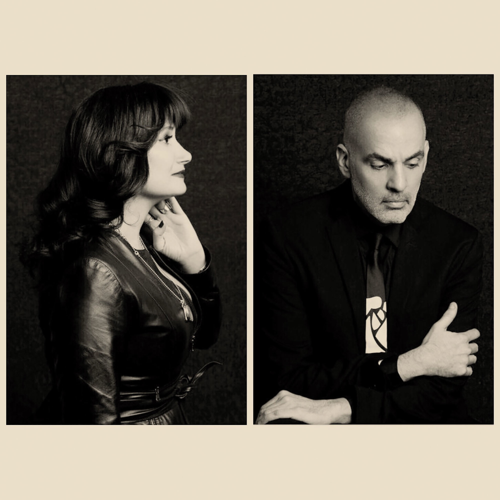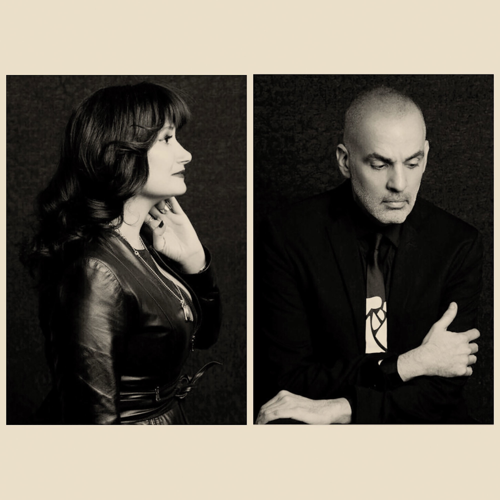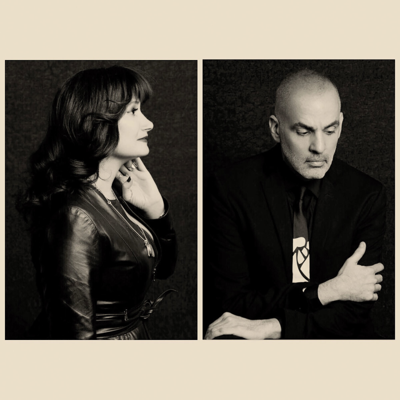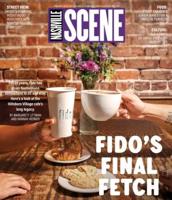
If you’ve ever really dug on the sounds of the ’80s — on the curious dalliances between analog and digital, on New Wave and punk playing nice with road-tested songcraft and hooks for days — then you know Book of Love. You might have to think on where you’ve heard them, or have a memory kick-started by a movie embedded deep in the back of your mind. But songs from their catalog endure: “Boy,” “Modigliani (Lost in Your Eyes),” “Pretty Boys and Pretty Girls,” their no-holds-barred cover of Mike Oldfield’s “Tubular Bells.” Founding members Susan Ottaviano, Ted Ottaviano (no relation), Jade Lee and Lauren Roselli (now Lauren Johnson) came together in 1983 as a synth-pop powerhouse, which was tapped to open for Depeche Mode on consecutive tours in 1985 and 1986. Book of Love released four albums and a bunch of stellar singles before calling it a day in 1994.
Following the release of a 30th-anniversary edition of their self-titled debut album in 2016 (which included “All Girl Band” and “Something Good,” their first new recordings since 1993), they’re back on the road. Lee and Johnson occasionally pop up for special occasions, but it’s mostly just the two Ottavianos. That will be the case on Saturday, when the group ends its current tour at Mercy Lounge. Susan Ottaviano spoke to the Scene via phone ahead of the show, the band’s first in Nashville since a 1991 appearance at 328 Performance Hall.
What are your thoughts on how your band was immortalized, albeit snidely, in “Instant Club Hit (You’ll Dance to Anything)” by The Dead Milkmen?
That song mentioned all these British groups, so we just got wrapped up in that. I don’t know if they knew that we were an American band or not. But I think it’s very much part of how our style of music got disrespected a lot during that time period. [Depeche Mode] is pretty much a supergroup at this point, but back then, they got no respect either. Synth-based artists didn’t get a lot of press, and they weren’t seen in the way typical American artists were.
But the Mode can do stadium rock now because they use guitars, and that’s apparently the key to most of it.
Exactly. It’s just like with U2 — as their sound became more American, the mainstream audience could work with that. … I’ve been listening to the Dolly Parton’s America podcast, and it’s really amazing. It’s the same thing: about how things come full circle, and how back in the ’70s and ’80s that so many people thought Dolly was a big joke. It took a while for people to respond to the fact that she’s written countless amazing songs and plays so many instruments.
As a culture, we’re at least trying to have the conversation about how these industries have exploited women and their work. Book of Love was three women and a gay man, everyone did vocals, and everyone played keyboards — but you were making great music for an industry that was not particularly known to pay attention to people like you.
I appreciate that. And I do think that’s one of the reasons why we were less successful and less respected. It’s an interesting thing, when you feel like you’ve done what you wanted to do, and it’s just not sustainable. The women in the scene in New York right now, maybe 10 or so years younger than me, things have changed enough to support the things that they’re doing. We were always sort of an albatross. … They couldn’t really stick us anywhere in any certain kind of genre, and it keeps you down in certain ways. But honestly, I have no idea what it must be like for new artists today, where you’re not making any money off the records, without having record companies, and just how they’re surviving.
You were on Sire Records, the major label headed by Seymour Stein, from 1985-1993, one of the most interesting time periods in its existence. Would you just stop by the label office and run into Ice-T or Ofra Haza?
Sometimes. There would be days where everyone would be amped up because Madonna was just there, and everyone would be talking. We were there at just the best time. And when we first got signed, I was totally pinching myself. It was where my favorite artists were at the time, and it was a really exciting time there.
Tell me about the role Ivan Ivan, head of I-Square Records and a noted electronic music producer, played in your deal with Sire.
Sire was looking to develop artists in conjunction with Ivan, so as Seymour was putting all this together with Ivan, they found us. We were the first artists that Ivan brought to Seymour. … That was definitely our good-luck moment. Ivan was looking for artists, and we had a demo of “Boy.” He heard the demo, supposedly without even getting to the chorus, and he decided to sign us.
In 1985, there was nothing else in the pop-music landscape that explored gender the same way “Boy” did, and I honestly don’t think there’s been anything since.
Totally. I feel like Ted was completely ahead of his time with that one, and with a lot of these songs. We were the first band on a major label to address the AIDS crisis [1988’s “Pretty Boys and Pretty Girls”]. We were writing about the things that were going on in our lives, and a lot of that process was very DIY. There was a bar called Boy Bar, and they weren’t letting women in. And Ted has always had a way with a turn of phrase. And especially given how we’re trying to talk about gender issues these days — I feel like we were upfront about that.
We didn’t know that, and we weren’t specifically trying to do that. But we lived in New York City on the Lower East Side in 1985, and we’re artists. It was a time when you could just get up there and form a band. And for me, it was a way to express my focus. And it was fun at art school, sure, but going to see Iggy Pop was more fun.
Is there a chance we might be hearing some new material from y’all?
This is the last show of the tour, and then we’re going to go off and work on something and then come back. And I don’t know exactly what we’re going to do, because people don’t buy records anymore. But we’re going to do something — it’s just not going to be a full-length album.







